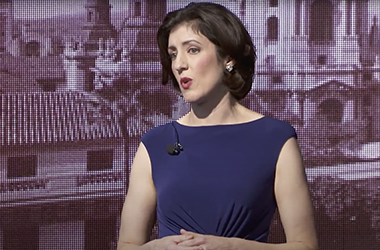Lessons from a Month of Major Family Changes

For Mother’s Day on May 9, I posted to my blog “My Mother’s Day Resolutions” which centered around dealing with the major changes looming in my life. Five weeks later, I can safely say “I was right.” The changes add up to a transition as big and life-changing as our daughter’s birth 9 years ago.
At the end of April, my father-in-law experienced complications during a brain biopsy. The biopsy was benign, but unexpected complications have had the same impact on him as if he’d had a significant stroke. He was in the hospital for seven weeks, and just this past week moved to inpatient rehabilitation. He had just retired a month earlier from a career of service to children and our daughter – the light of his life – spoke at his retirement party. We are all reeling and trying to adapt to the reality that our lives for the foreseeable future will center around helping him recover, relearn and get the absolute best care he needs to do so.
In the middle of this period, my husband started a new job (that he loves) in Santa Monica. He leaves every morning at 5:45 a.m. The only sign we have of his existence in the morning is the lunch he packs for Kate and leaves on the kitchen counter. If we’re lucky we see him again by 7:00 or 8:00 at night. After over five years of being available all the time to share family work, all of a sudden he’s almost completely unavailable. So I took two weeks of sick leave from my job to be at the hospital and help his mother navigate the system and advocate for my father-in-law.
Day to day, we all just put one foot in front of the other, but when I take a moment to consider it all, it’s a lot. Too much for me to really have a coherent way to write about it yet. But I have relied on several of my lessons learned in remodeling motherhood and a lifetime of helping others deal with and thrive in times of change. All I can think to do at this point is share a few of those with you.
- Asking for help. At a certain point in the last five weeks, I admitted to myself that we needed help getting through this difficult time. I let a good friend know that we could use two or three meals over a key two week period. Within 48 hours, I had a schedule of friends dropping off meals every other day for two weeks. I put out the word to our closest friends at Kate’s school, and over two weeks they coordinated picking her up from school and scheduling playdates on the weekend so David and I could be at the hospital together. The support made both a practical and emotional difference to our entire family, and as one of my friends said, “We benefited too because you empowered us to contribute and made us part of your team.”
- We WANT to care for those we love. Many people (including my mother-in-law) have said to me how admirable it is for me to have taken so much time and energy to help care for my father-in-law. What I always answer is that it is not an obligation, a burden and it isn’t even a sense of responsibility that makes me do it. I WANT to help care for him in the same way I WANT to care for my daughter. Caring for others is both a human need and desire, one we don’t make nearly enough room for in today’s society.
- Jobs need to adapt to the reality of caregiving in people’s lives. I am so grateful that the people I work with gave me the okay to use sick time to be available to my family at such a critical period. In addition, I’m able to do my work when and where I am able so that I can fit work together with family and life. I became even more fully aware how few people have this flexibility and how important it is that more and more people have it.
- Parenting takes stretches “hanging out time” along with “quality time.” Figuring out how to help our daughter come to grips with what has happened to her grandpa, one of her favorite people in the world, has been a parenting challenge. Often when I ask her about it directly, she’s not ready to talk. It’s after we’ve been hanging out for two hours doing other things that her face clouds and she opens up on her own about how she’s feeling about what’s happened.
-
There’s no skipping the Ending and Neutral Zones when dealing with change. Every change brings an internal transition as we adapt to what has changed. With both my husband’s new job and my father-in-law’s situation, my family and I are still somewhere in the mixed up world of the Ending Zone (anger, sadness, feelings of loss that things won’t be like they were before) and the Neutral Zone (where you accept the change but feel uncertain and confused because you don’t know what the new reality will be yet). I’m a planner. I wanted to make decisions and a plan for “what now?” It was my husband that reminded me that it’s too soon to make decisions. We don’t have enough information. We need to be okay with things being up in the air for a bit. In other words, we need to let ourselves be in the Neutral Zone for awhile before we get to a New Beginning. Fortunately, I’ve been through this enough to know there will eventually be a New Beginning.




Kristin — You have been through a lot, but you are strong and you will handle it. I wanted to add one more thought on asking for help. When my husband was very ill several years ago, I had to turn over everything to the care of my family, friends and colleagues. At the time, when I was thinking clearly (which wasn’t often), I felt guilt. But so many people said it made them happy/grateful to be able to do SOMETHING during that very difficult period. You are wise to accept help — and you’re helping others by allowing them to help you. Hang in there and feel free to call out to your Twitter friends if you need us! -H
Thanks so much Hollee. I feel so much support both real and virtual and you are right that people are truly grateful to be asked to help.
Kristin,
You are so fortunate to have such a supportive group of friends. Believe them when they say they are happy to help. Friendship does not have the rituals and traditions of how to behave in a crisis or tragedy as exist for immediate family. Being allowed to help is a gift that goes both ways.
You are also so right in recognizing that we want to help those we love. I know that I have felt only gratitude for the time and care I was able to give my parents. It was hard to understand the people who presumed it was a burden I was bearing.
You have a great attitude and David is right – go with the flow…
Thanks Wendy! Though I hate to admit my husband is right. : )
Beautiful! Well said, again. As a caregiver coach, I’m routinely humbled by the hearts and minds of working caregivers, and you’re no exception.
PSA: Many social service agencies now offer thorough, tailored assessments, referrals and ongoing “coaching” to caregivers. Sometimes even a 15-minute per week check-in can make a big difference. Sometimes a third party can spot dangerous burnout even before someone close to the situation.
Thanks so much Monica. I had no idea about “coaching” for caregivers. I will look into it as well for my mother-in-law who will likely be playing an intense caregiver role for awhile.
[…] family is dealing with a lot of transition: our daughter transitioning to middle school; both my husband and I changing our employment – in […]